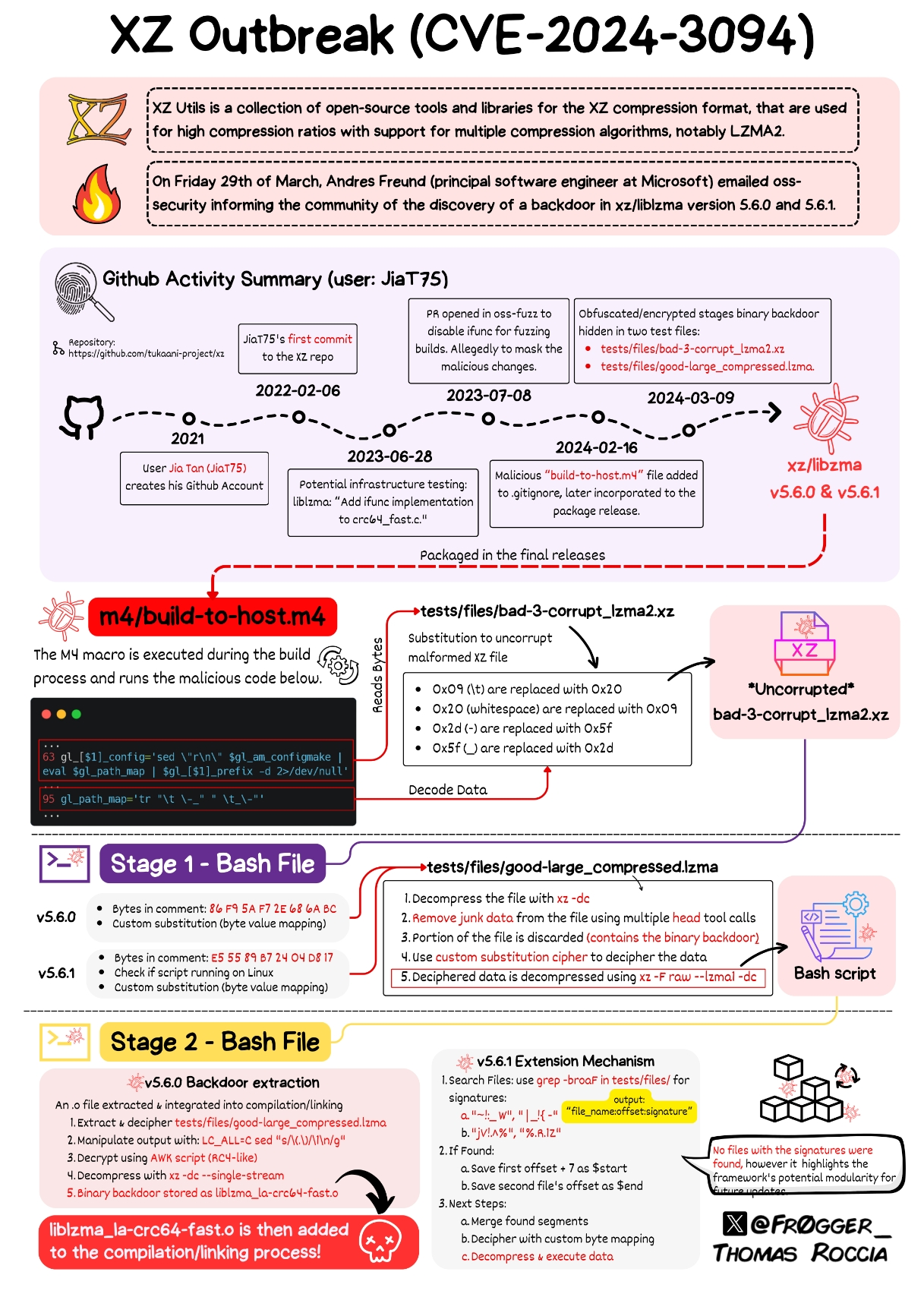this post was submitted on 01 Apr 2024
1218 points (99.2% liked)
Linux
48655 readers
619 users here now
From Wikipedia, the free encyclopedia
Linux is a family of open source Unix-like operating systems based on the Linux kernel, an operating system kernel first released on September 17, 1991 by Linus Torvalds. Linux is typically packaged in a Linux distribution (or distro for short).
Distributions include the Linux kernel and supporting system software and libraries, many of which are provided by the GNU Project. Many Linux distributions use the word "Linux" in their name, but the Free Software Foundation uses the name GNU/Linux to emphasize the importance of GNU software, causing some controversy.
Rules
- Posts must be relevant to operating systems running the Linux kernel. GNU/Linux or otherwise.
- No misinformation
- No NSFW content
- No hate speech, bigotry, etc
Related Communities
Community icon by Alpár-Etele Méder, licensed under CC BY 3.0
founded 5 years ago
MODERATORS
you are viewing a single comment's thread
view the rest of the comments
view the rest of the comments

Can't confirm but unlikely.
Via https://boehs.org/node/everything-i-know-about-the-xz-backdoor
That actually suggests not Chinese due to naming inconsistencies
Could be Chinese creating reasonable doubt. Making this sort of mistake makes explanations that this wasn't Chinese sound plausible. Even if evidence other than the name comes out, this rebuttal can be repeated and create confusion amongst the public, reasonable suspicions against accusers and a plausible excuse for other states to not blame China (even if they believe it was China).
Confusion and multiple narratives is a technique carried out often by Soviet, Russian and Chinese government. We are unlikely to be able to answer the question ourselves. It will be up to the intelligence agencies to do that.
If someone wanted to blame China for this, they would take the name of a real Chinese person to do it. There is over a billion real people they could take a name from. It unlikely that a person creating a name for someone for this type of espionage would make a mistake like picking an implausible name accidentally.
They're more likely to be based in Eastern Europe based on the times of their commits (during working hours in Eastern European Time) and the fact that while most commits used a UTC+8 time zone, some of them used UTC+2 and UTC+3: https://rheaeve.substack.com/p/xz-backdoor-times-damned-times-and
I'm not suggesting one way or another, only that the quoted explanation taken at face value isn't suggesting China based on name analysis.
There's also no reason to assume a nation state. This is completely within the realm of a single or small group of hackers. Organized crime another possibility. Errors with naming are plausible just as the initial mistakes with timing analysis and valgrind errors.
Even assuming a nation state, you name Russia as a possibility. Russia has shown themselves to be completely capable of errors, in their hacks (2016 election interference that was traced back to their intelligence base), their wars, their assassination attempts, etc.
And to me it doesn't seem any more likely that China would point to themselves but sprinkle doubt with inconsistent naming versus just outright pointing to someone else.
It's all guesses, nothing points one way or another. I think we agree on that.
A big part of it is also letting other people know you did it. China and Russia are big on this. The create dangerous situations, then say they aren't responsible all while sowing confusion. The want plausible deniability, confusion and credit for doing it.
So this doesn’t really tell us one way or the other who this person is or isn’t.